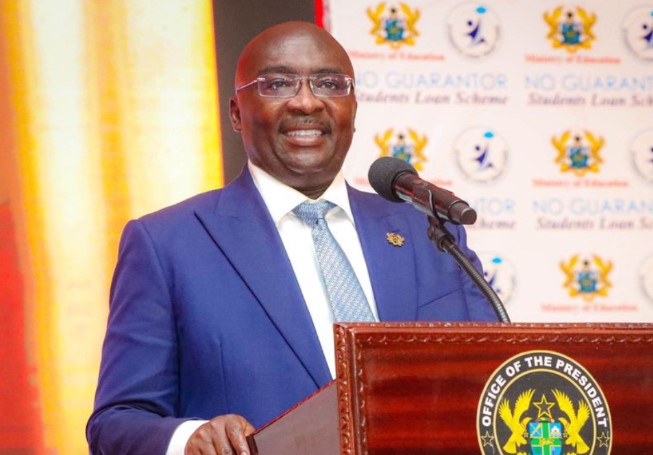On Wednesday, February 7, Vice-President and New Patriotic Party (NPP) Presidential Candidate will be delivering a major speech to the general voting public.
The theme for the speech is Ghana’s Next Chapter: Selfless Leadership and Bold Solutions for the Future.
Political observers will recall his public lectures in the lead up to the 2016 presidential election and agree that he successfully prosecuted the case against former President John Mahama on economic management grounds.
I observed during the party primaries that he stayed away from direct media engagements.
After his acceptance speech on the day he won the party’s nomination, there has not been significant direct public engagement on his part.
I must note that his campaign staff have been very present and active in media spaces.
Finally, he is ready to speak directly to the Ghanaian people.
His past public lectures made the case for the Akufo-Addo presidency with him as Vice-President.
This time he faces his own defining moment — making the case for a Bawumia presidency.
The Current Political Terrain
There is no denying that Dr Bawumia and his party are going into this election facing a very challenging political terrain.
It is the end of the eight-year rotational cycle Ghanaian voters have been giving our two main political parties.
The key economic indicators such as GDP growth, debt levels, exchange rate, inflation, etc. have seen some very difficult times.
Granted, inflation has been on a downward trajectory and growth is projected to rebound to at least four per cent by Fiscal Year 2025.
However, there is no denying that Ghanaians have felt some real economic pinch points over the last several years.
In addition, Ghanaians have regularly expressed concerns about many good governance issues such as corruption.
But this is also an incumbent government that has implemented several meaningful programmes and policies such as one district one factory (1D1F), one village one dam (1V1D), Infrastructure for Poverty Eradication Program (IPEP), Free Senior High School (Free SHS) programme, Planting for Food and Jobs (PFJ), etc.
The overall impact of these programmes and policies does generate public debate but these were designed to address important socio-economic challenges.
It is within this context that Dr Bawumia will be delivering this speech.
Here are some things I believe the speech must do.
Dr Bawumia’s Tasks
1. Acknowledge the pinch points Ghanaians have been feeling.
It will be very important to recognise how Ghanaians feel about the state of the economy.
Empathy is not a policy solution, but it does have a place in political dialogue with citizens.
It will be a tragedy for the speech to overlook the pinch points and paint a rosy picture.
Ghanaians know what they have felt, and it will be good to meet them at their pinch points.
Avoid the temptation to gloss over this reality even as the speech highlights key efforts of this administration.
2. Reconcile 2016 assertions with current economic realities.
Dr Bawumia made several forceful economic arguments in the lead up to the 2016 election.
The economic realities and the challenges faced have cast shadows over some of those economic arguments.
Regularly his words are played back and will continue to be as the election year heats up.
Devote time in the speech to reconcile past statements with present realities and let Ghanaians decide how to respond to the reconciliation.
3. Avoid extreme partisanship.
The audience for this speech is not fellow party members, in my opinion.
The audience is Ghanaians of all persuasions because I see the goal of the speech as making the case for a Bawumia presidency and what the bold solutions will deliver for all Ghanaians.
I am a political realist and know that such speeches have a place for whipping up partisan support and aiming “shots” at the main political opposition.
I however hope the speech will balance partisan imperatives with national interests.
4. Be measured in the vision for the future.
There are still major socio-economic challenges the country must address.
I therefore agree that the solutions for the future must be bold.
I however hope that a bold vision for the future will not translate into a litany of political promises.
Campaign season offers the incentive to overpromise, but governing is about setting key priorities and addressing them with the full resources at the disposal of any government.
That is what I hope the speech will do – identify the key priorities and articulate how a Bawumia presidency will address them with bold solutions.
These are by no means an exhaustive list of what Dr Bawumia must seek to accomplish with this speech.
As a keen political observer, they are the things I would be paying attention to as he delivers the speech.
After a long period of silence, this is his defining moment.
The writer is a Democracy and Development fellow at the Ghana Centre for Democratic Development (CDD-Ghana)
Source: Graphiconline

